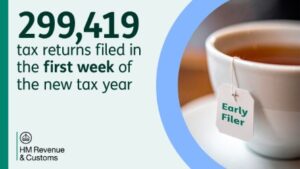
Writing an annual report and accounts
–
Writing an annual report and accounts for your business is a legal requirement for most companies. It provides shareholders, investors, and other stakeholders with a comprehensive overview of your company’s financial health, performance, and future prospects. On this page, we’ll walk you through how to create an annual report and accounts for your business, in compliance with UK regulations.
–

–
What do you have to submit?
Determine whether your company falls under the Small, Medium-sized, or Large category as per the Companies Act 2006. This will affect the extent of reporting and disclosure requirements. The Government has a comprehensive guide to understanding your business’ requirements under the Act.
Collect financial data
Gather all the financial information about the last fiscal year that you will need, including income statements, balance sheets, cash flow statements, and notes to the financial statements. Ensure that your financial records comply with UK Generally Accepted Accounting Principles (UK GAAP) or International Financial Reporting Standards (IFRS), depending on your company’s size. The Financial Reporting Council (FRC) has a guide to the differences.
Choose a reporting framework
Select the appropriate reporting framework (for example, FRS 102 or FRS 105 for small entities) and apply it consistently throughout the report.
Prepare the Directors’ Report
The Directors’ Report is usually required for medium and large companies as defined under the Companies Act 2006. Regularly updated guidance can be found on the Government website. But generally, it should include:
- A business review: Provide an overview of the company’s operations, strategies, and performance during the year.
- Environmental and social issues: Report on environmental and social matters relevant to your business.
- Employee information: Disclose employee numbers, policies, and related matters.
- Principal risks and uncertainties: Identify and assess the major risks facing your business.
- Likely future developments: Describe any significant events expected to affect the company’s operations.
- Financial review: Summarise the financial performance, position, and future prospects.
Small companies do not have to deliver a copy of the directors’ report or the profit and loss account to Companies House. If you choose not to deliver a copy of the profit and loss, the company must state this on the balance sheet.
Prepare audited financial statements
If your company is required to have its financial statements audited (smaller companies may be exempt depending on their size / income), engage a qualified auditor. The financial statements should include:
- Income statement (profit and loss account)
- Balance sheet (statement of financial position)
- Cash flow statement
- Notes to the Financial Statements (this is commentary which may include details about accounting policies, significant accounting estimates, and other disclosures required by your chosen reporting framework).
Report on corporate governance (if applicable):
For larger companies, include a section on corporate governance in your annual report, outlining your company’s adherence to the UK Corporate Governance Code.
Directors’ responsibilities and statement
Include a statement from the directors about their responsibilities for the financial statements, internal controls, and the going concern assumption.
Independent auditor’s report (if applicable)
If your company is large enough that it requires its financial statements to be audited, you must include the auditor’s report, which provides an independent opinion on the financial statements’ fairness and compliance with accounting standards.
Chairman’s or Chief Executive’s statement
You may wish to include a statement from the chairman or chief executive summarizing the company’s achievements, challenges, and future outlook.
Shareholder information
If you have shareholders, you will need to provide information about them, your dividend policies, and any proposed resolutions for the annual general meeting (AGM).
Design and layout
It might seem like a small thing, but you should make sure your report can be easily read. Ensure the designer gives it a clean layout, using charts and graphs where appropriate to help illustrate financial data.
Publish, distribute and submit
Once signed off by the board of directors, publish the annual report and accounts on your company’s website, if applicable, and submit them to Companies House and shareholders. Print copies for distribution at the AGM. File the annual report and accounts with Companies House within the statutory deadline, typically nine months after the financial year-end.
Remember that the specific requirements for an annual report and accounts may vary depending on your company’s size, structure, and industry. We advise seeking professional guidance from a qualified accountant or financial expert to ensure compliance with UK regulations and best practices.
Learn more
Writing a budget for your business
Find out about the legal requirements and governance your business needs to follow
–

–
A record 299,419 returns filed in the first week of the new tax year
Self Assessment customers can submit their tax return for the 2024 to 2025 tax year between 6 April 2025, the first day of the new tax year, and the deadline on 31 January 2026.
Business Essentials: What is a Tax Deductible Expense?
As a business owner, it can be daunting when you are trying to work out what you can and can’t claim as tax deductible expense. Other business owners will give you their opinion but is that the right advice for you and your business? You can search online, but this can be confusing and often contradictory. So, what can you claim?
How digital tax will benefit your business
You will probably have heard about digital tax but what does it actually mean for you and how will it benefit your business?
Business Basics Series: Webinar Recordings & Blogs
These resources provide a guide to key subjects such as tax, pricing and all things numbers. Jo Tomlinson is a qualified Management Accountant, certified QuickBooks Advanced ProAdvisor, Making Tax Digital ProAdvisor and 1 of only 11 Certified QuickBooks Trainers’ that work on behalf of QuickBooks, training accountants across the UK.




